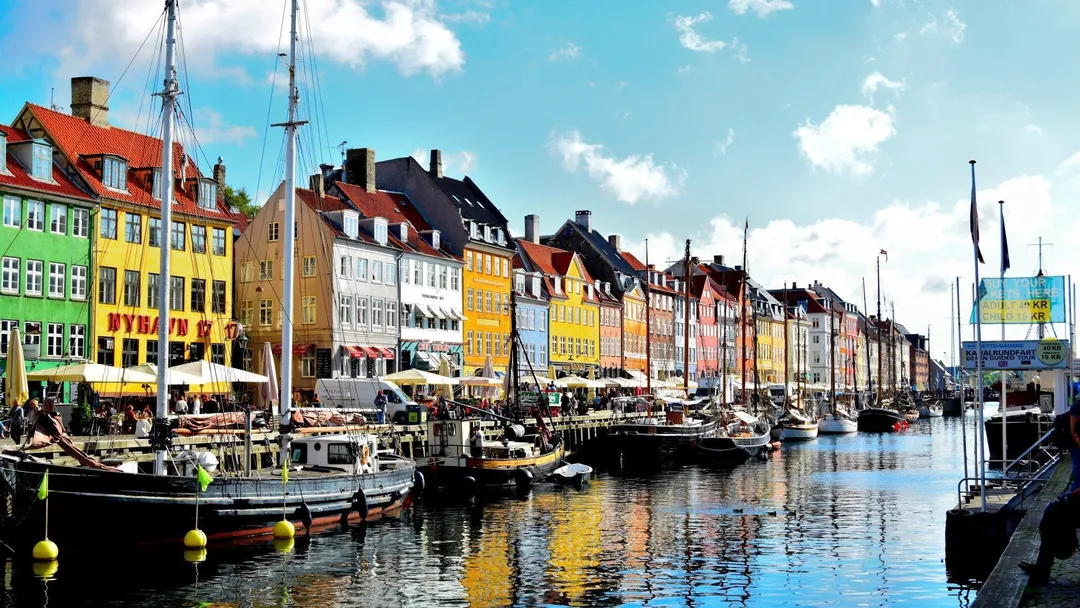Oguz Kaan Kısa · Feb. 4, 2021

If someone asks you to paint a picture of happiness, you can now find your preference for painting any Danish. You ask why? Unemployment is almost nonexistent, working hours are low, they are always joyous. They are happy almost everyday! When you learn these things about Denmark, you will be shocked!
Kalmar Union is the name given to the union that formed as a result of three Scandinavian countries coming together under the rule of one king between the 14th and 16th centuries. They were also called the Nordic Powers.
The Danish constitution was signed on June 5, 1849. Denmark has Europe's oldest monarchy, with a history of more than 1000 years and still standing.
Denmark has a coastline of 7314 kilometers. It is possible to reach the ocean from any point in the country by only 52 km.
Stories about the origin of their flag design differ. But the best known is a legend that the flag fell from the sky during a war in the early 13th century. This celestial talisman, captured by the Danish king before he fell to the ground, led the royal army to victory; In fact, it is thought that the Danish flag, one of the oldest flags of the world, may have been derived from a crusade.
In Denmark, 75% of those aged 15-64 have a paid job. This rate is above 67%, which is the OECD (Organization for Economic Co-operation and Development) employment average. In addition, Denmark's contribution to Nordic tourism is 46%.
There are nearly 5 thousand pig farms in the country. The pork industry has been developing in this region for more than 100 years. In addition, approximately 90% of the production is exported.
Copenhagen's Noma has been selected as the world's best restaurant in 2010, 2011, 2012 and 2014 by "Restaurant Magazine".
Because the male mortality rate is high in the country. One fourth of deaths are due to cancer. Breast cancer and prostate cancer are among the most common.
For example, pregnant women in Denmark can take paid leave for 4 weeks before and 14 weeks after birth. Parents in Denmark are given 52 weeks of paid leave in total. They also have the shortest weekly working hours; working hours are approximately 34 to 37 hours in a week.
Also, in rural areas of Denmark, people do not lock their cars and bicycles and leave them unlocked without any danger of being stolen.
Neils Bohr, who won the Nobel Prize in Physics in 1922 for his discoveries regarding the structure of atoms and the radiation they emit, is one of these people.
It abolished the law by the Danish Parliament subjecting individuals to mandatory sterilization and related surgeries to change their gender identity. Thus, trans and intersex people can acquire a female or male identity only in line with their statements, even without gender reassignment surgery.
The act proposed by the Thorning-Schmidt government to legalize same-sex marriage was approved by the Danish Parliament on June 7, 2012, and received royal approval on June 12.
The biggest factor in this is that they are all happy individuals in general. Denmark ranks second in the list of the happiest countries in the world based on data collected by the Gallup World Survey, while Switzerland ranks third. Norway is one of the countries that managed to enter the list.
The country with the highest voter turnout in the OECD (Organization for Economic Co-operation and Development) is Denmark with 86%. The people of Denmark are the most active country in Europe in terms of participation in elections.
Annual sugar consumption in Denmark is about 8.2 kilograms per person.
Scientists have reached some conclusions in their research that blue-eyed people are related to each other. Today, there are over 300 million blue-eyed people in the world.

 Back
BackLet us find your dream university.
